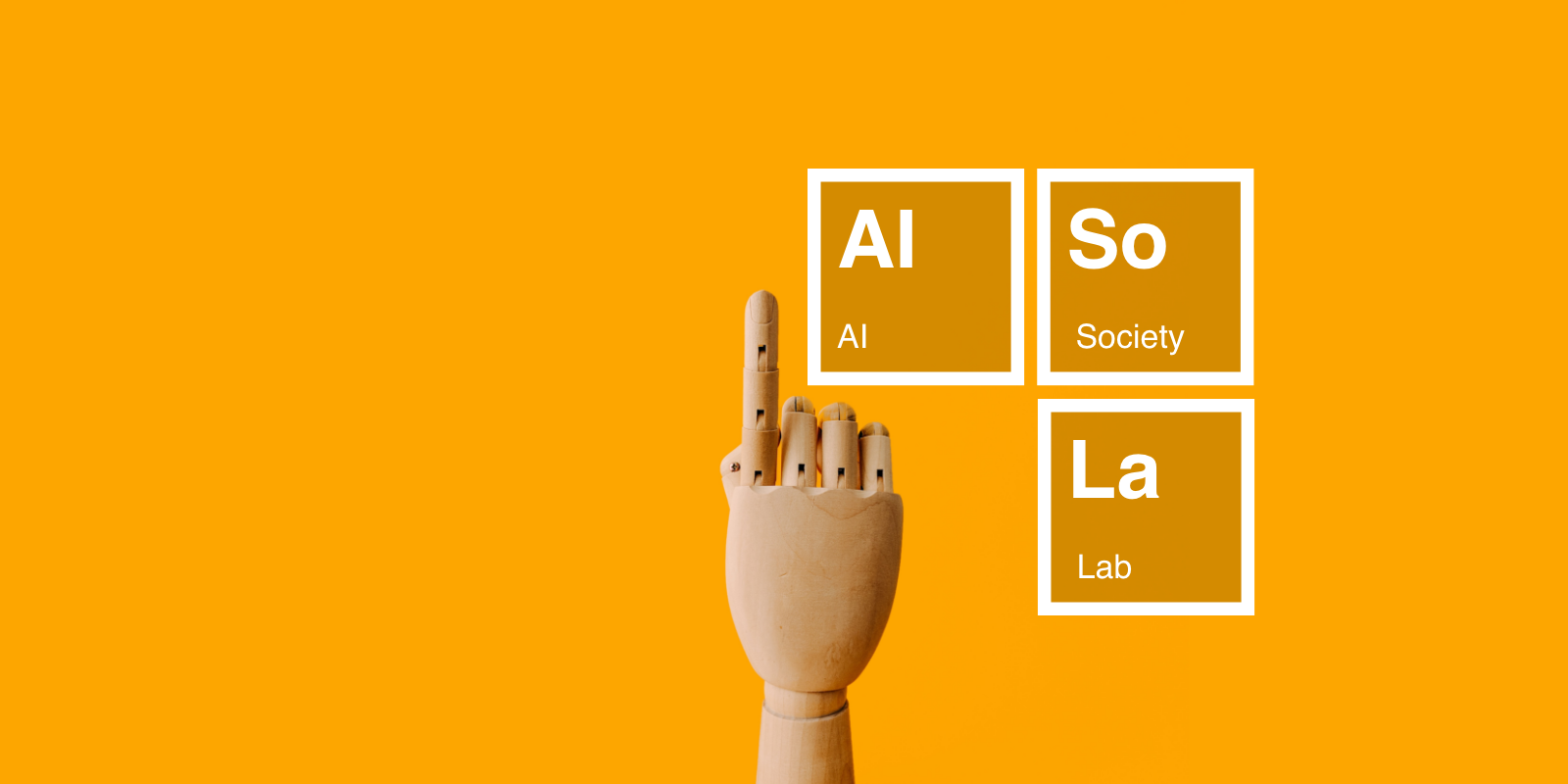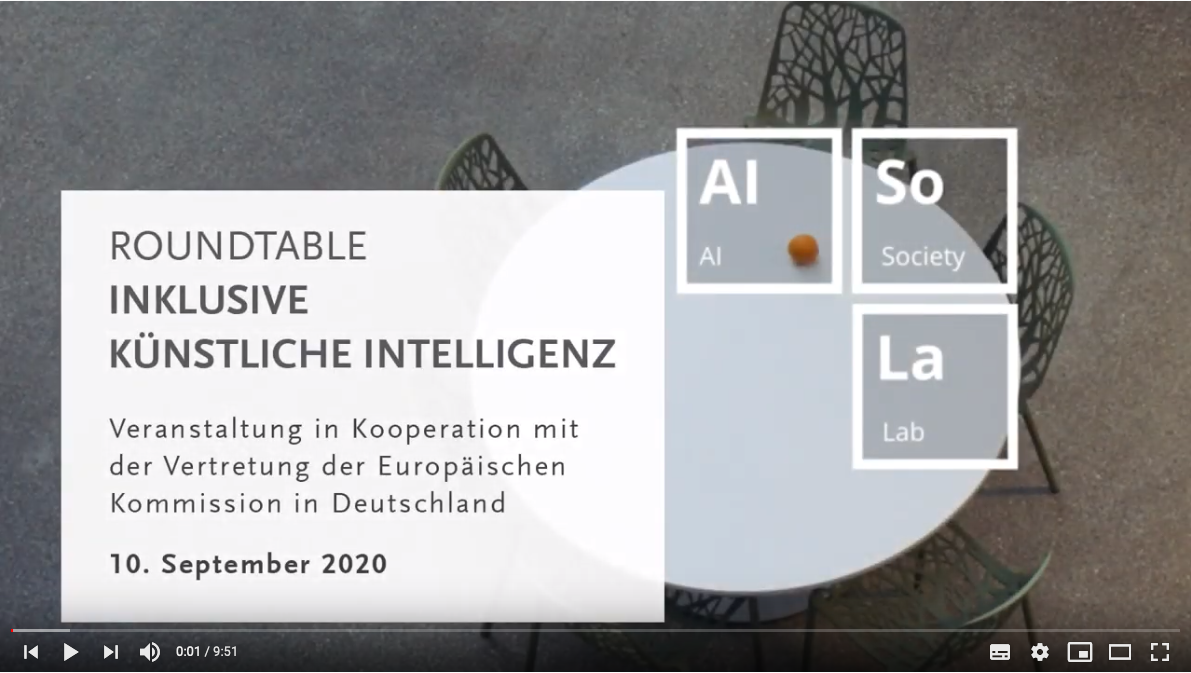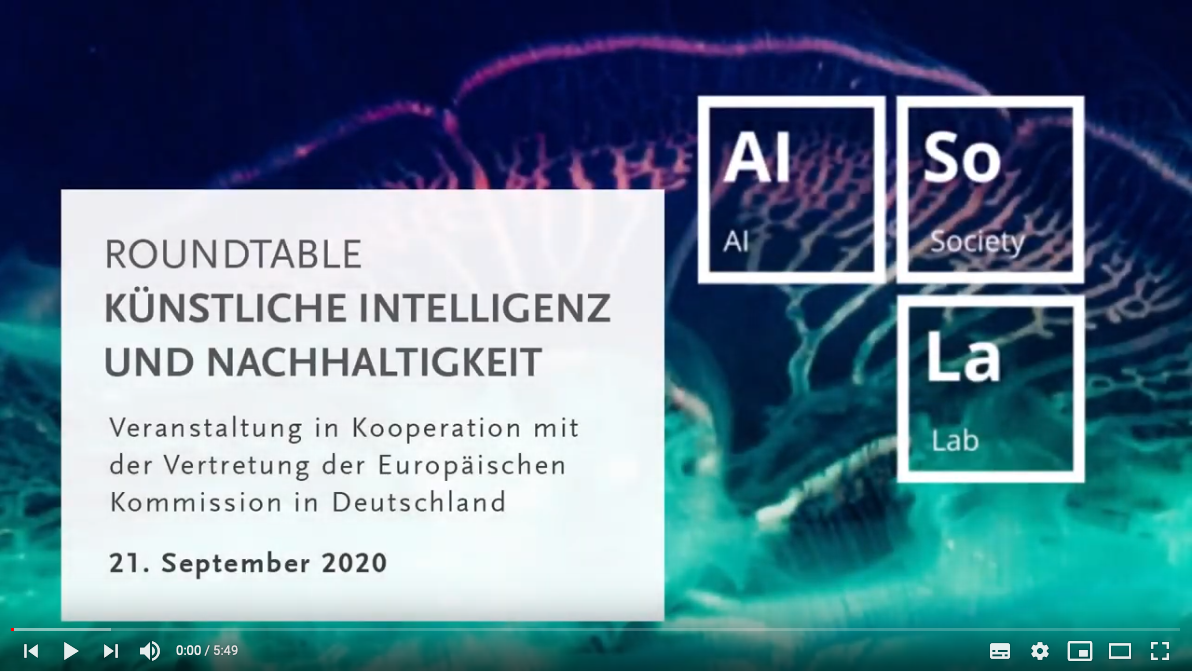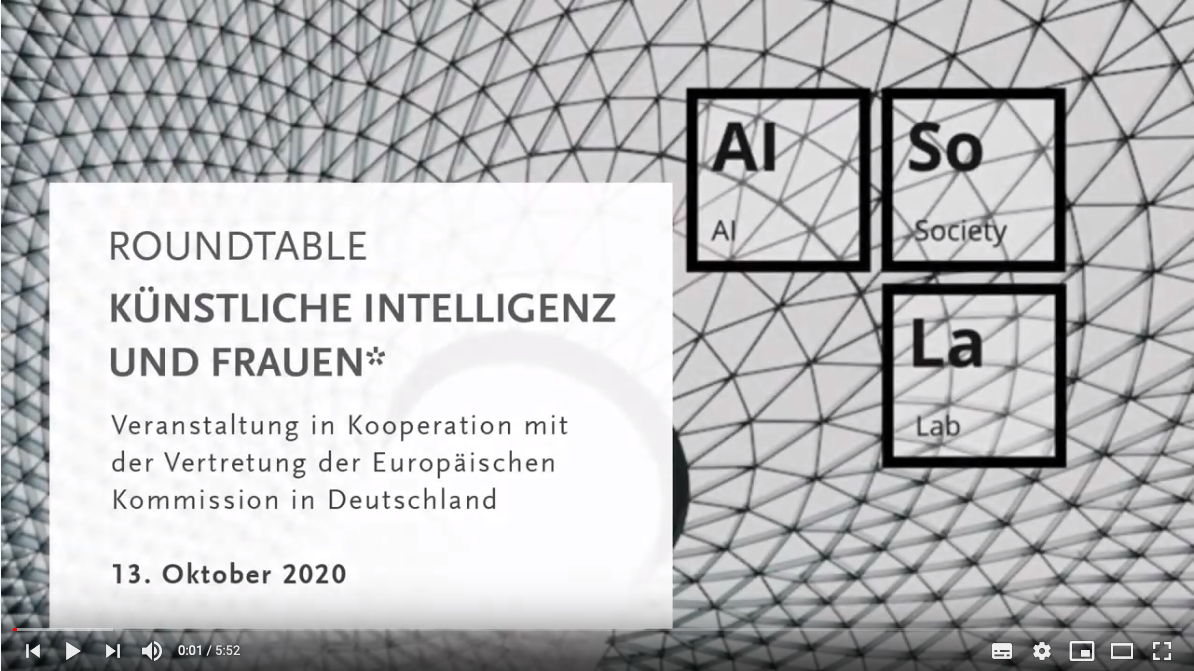Making sense of our connected world

Roundtable dialogues for the future of AI in Europe
Pathways for an excellent European AI that promotes fundamental rights and the common good
With the publication of its White Paper on Artificial Intelligence in February 2020, the European Commission launched a broad consultation process and invited key figures in civil society, industry representatives and researchers to contribute proposals for a European approach to AI. In this context, the AI & Society Lab at the Alexander von Humboldt Institute for Internet and Society joined forces with the Representation of the European Commission in Germany for a series of roundtables. Four events brought together diverse experts and practitioners from various fields to share their perspectives, concerns and suggestions in a dialogue around issues addressed in the White Paper.
European digital infrastructure – a solid foundation for European values
The first edition of this roundtable series revolved around the topic of AI, the Internet of Things (IoT) and the concept of decentralised data, with discussions on the status quo and pitfalls of this approach. Malte Beyer-Katzenberger from the EU Commission underlined that “decentralisation is a must” for Europe to become the “global hub for data” (White Paper on AI, p. 25). According to Vanessa Cann, managing director of the German Federal AI Association, European projects such as GAIA-X should become “more than just an infrastructure” in this context and could offer services as well as APIs in order to become attractive. The roundtable participants argued that necessary measures still have to be agreed on in order to realise these potentials, while safeguarding digital and fundamental human rights at the same time. Underlying, broader concepts such as productivity or security and their implications will have to be re-negotiated, while open data approaches are thought to have great potential for safeguarding digital human rights – provided that these data sets are as diverse as the teams working with them. Building AI with open AI tools, together and in a bottom-up manner could be “a great chance to tackle societal problems together”, said Dr. Stefan Ullrich of the Weizenbaum Institute.

Inclusive AI – leaving no one behind
A central suggestion by the White Paper is the risk-based approach for regulation. One field “considered as high-risk” (p. 18) is the field of human resource management. The starting point of our second roundtable on inclusive AI was the realisation that citizens, workers as well as anti-discrimination advice centres and other bodies often do not understand how the systems they use work and whether they potentially present a source of discrimination. Various participants argued that a “strong right to information” and transparency obligations should therefore be reflected in the European legal framework that so far still lacks “regimes for transparency, traceability and human oversight” (p. 9). Rather than focusing on high-risk cases or sectors, Carla Hustedt of the Bertelsmann Stiftung suggested that it might be more helpful to define additional criteria for “identifying the cases within sectors that are really problematic”. Just like technological progress, legal advancements should be “inseparably linked to a broad societal debate about norms and to the protection of democratic values”, especially outside the global North, urged Jaana Müller-Brehm of iRights.Lab.

AI and sustainability – growth vs. the environment?
In our third roundtable on AI and sustainability we aimed to shed light on the question whether AI can be a “critical enabler” (p. 2) to “tackle the most pressing concerns, including climate change and environmental degradation” (p. 5), or not. For Dr. Marc Schattenmann from the Federal Ministry for Environment, a trustworthy European AI “must also be sustainable AI”, suggesting that policies and regulation must feature environmental and climate protection “everywhere as a cross-cutting issue”. In order to “make AI itself more sustainable” (Björn Juretzki, EU Commission), experts underlined the need for sustainability regarding both products and services and discussed ideas such as the introduction of a Green AI label. In addition to that, Uta Mühleis (RESET.org) emphasised that energy consumption “must be kept within limits”. Anchoring sustainability at the core of business models and linking it closely to profitability could be one approach to achieve this.

Diversity – uniting and moving Europe forward
As the High Level Expert Group on AI declared: diversity and inclusion must play an essential role for the development of AI applications. In our fourth roundtable, we examined the status quo of women in the field of AI and tech in general. Women are still underrepresented in the tech-domain. One hindering issue for women’s success is certainly the lack of female role models and diverse success stories, as Tina Nord (ultimate.ai) pointed out. In the follow-up of this roundtable, we compiled a position paper (in German only), identifying the biggest challenges for women in AI and tech and discussed possible future steps. The paper presents the key claims as formulated by the participants, such as: “AI visions and strategies also need to include intersectional perspectives” and “Societal challenges call for societal discourses – not for technical solutions”. It’s available for download on our website.

Together for AI for the common good
In the coming years, the AI & Society Lab, as well as the newly established research group on Public Interest AI, will keep on building networks around the topics the roundtables have addressed and around other related topics. In the spirit of experimentation, creativity and cooperation, we will continue to conduct research in a practical and application-oriented manner while fostering dialogues between politics, industry and civil society. Anyone with further inquiries or socially relevant questions revolving around these topics is very welcome to get in touch with us.
This blog post first appeared on the Futurium pages of the European Commission on 26 February 2021 and is published here with kind permission.
This post represents the view of the author and does not necessarily represent the view of the institute itself. For more information about the topics of these articles and associated research projects, please contact info@hiig.de.

You will receive our latest blog articles once a month in a newsletter.
Artificial intelligence and society
Online echoes: the Tagesschau in Einfacher Sprache
How is the Tagesschau in Einfacher Sprache perceived? This analysis of Reddit comments reveals how the new simplified format news is discussed online.
Opportunities to combat loneliness: How care facilities are connecting neighborhoods
Can digital tools help combat loneliness in old age? Care facilities are rethinking their role as inclusive, connected places in the community.
Unwillingly naked: How deepfake pornography intensifies sexualised violence against women
Deepfake pornography uses AI to create fake nude images without consent, primarily targeting women. Learn how it amplifies inequality and what must change.





